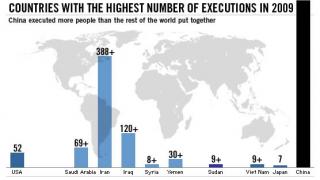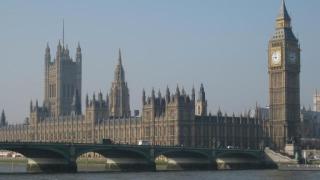
To mark the World Day Against the Death Penalty, UNA-UK and Chatham House hosted a debate on 6 October on the prospects for progress on a global moratorium on capital punishment - endorsed by a majority of states in the UN General Assembly for the first time in 2007.
The event, which was chaired by UNA-UK's Chair, Lord Hannay of Chiswick, featured presentations by:
- Kate Allen, Director, Amnesty International UK
- Ignacio Llanos, Counsellor, Embassy of Chile (Chile and Gabon sponsored the 2008 moratorium resolution)
- Peter Hodgkinson OBE, Director, Centre for Capital Punishment Studies, University of Westminster
Though more than two-thirds of the world's countries have abolished the death penalty in law or practice, capital punishment remains a serious issue. Eighteen states carried out executions last year, with methods including hanging, public beheading and stoning.
Death penalty 2009 source Amnesty International
Source: Amnesty International
Later this year the UN General Assembly will consider progress on a 2007 resolution calling for a global moratorium on the death penalty. Though the resolution passed (104-54 votes, with 29 abstentions), opponents orchestrated a fierce debate, claiming that states should be free to determine their domestic criminal justice systems. In 2008, a resolution reaffirming the call saw the voting balance shift slightly, with more states choosing to sit on the fence.
On 11 October 2010, the UK launched a global strategy for abolition of the death penalty. Describing the strategy as realistic but ambitious, FCO Minister Jeremy Browne said "" I want us as a British Government to stand up and to take a moral stance on this issue right around the world"".
UNA-UK will be following the developments at the General Assembly closely.






